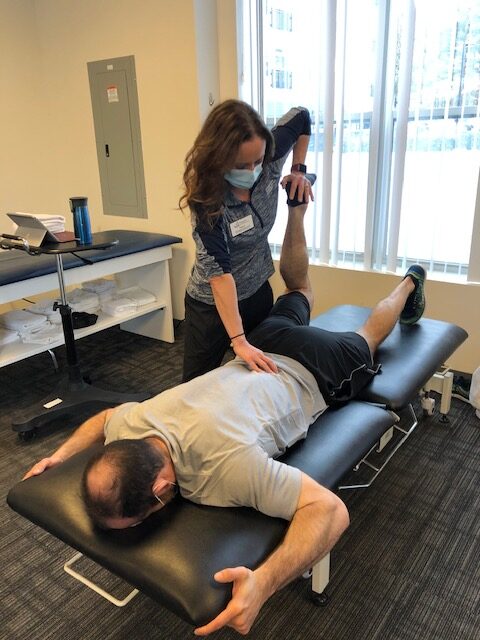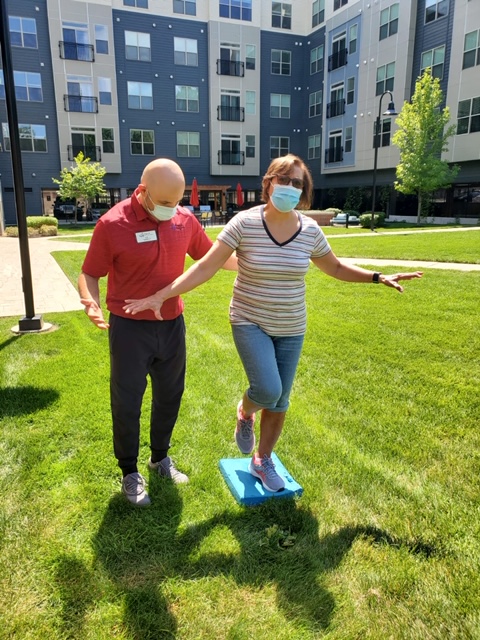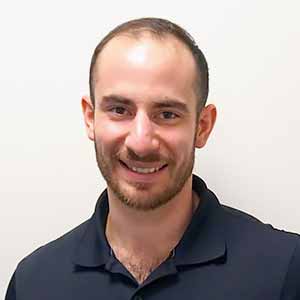Hi everyone!
After working with many post-op patients over the last few years, there are a few points that have come up over and over again in the recovery process. In January of this year, I had my own hip surgery and thus was able to experience some of these things first-hand. The following would be my advice to a patient during the first few months following surgery, on a variety of topics that are likely to appear.

First and foremost, you should expect good days and bad days. There may be days where you even question if the surgery worked, and if you’re going to actually be better than before. Don’t be surprised if you are still getting sore and having difficult days many months down the line. The healing process is not going to be a completely linear process, so don’t think that each day you will feel better than the previous.
Also, realize that the recovery process may take longer than you had initially thought. A lot of times a surgical protocol and what a surgeon might tell you are just general guidelines. Some people may heal faster, but many will take longer than they have been told. And remember, you should never try to compare your surgery and recovery to that of a professional athlete. Although someone like Tom Brady or Lebron James can spend unlimited time and money on recovery tactics, we don’t all have the luxury to be able to do that. Dealing with a 40-hour a week desk job, kids and cooking dinner nightly is a different world than spending over a million dollars a year on your body as Lebron does.
One thing that will ensure you recover quicker is by attending your physical therapy sessions – even if you are sore. Often, a patient will cancel their therapy session because they are sore. It sounds easy to sit at home when sore, but it’s probably not what is going to be most beneficial to your recovery. Showing up to your appointment and finding the right dosage of movement can make you feel less sore. You may be surprised when you leave feeling better than when you walked in.
After the first couple of days, try not to sit around for too long at once. Despite being tired and sore, you do want to at least get up and move around the house to prevent stiffness. Try to get outside when possible. Sunlight and easy movement outdoors can go a long way towards feeling better. Maybe that means just walking to the mailbox or setting up a chair outside where you can eat lunch just to get out of the house.

It’s also not uncommon to have other body parts hurt due to compensation after a big surgery. Following a knee or hip surgery, you may experience back pain from your gait being affected. You may frequently experience neck or trap pain after a shoulder surgery, especially if you have limitations reaching overhead. These aren’t necessarily issues that you may have been warned of pre-op, but they certainly can become problematic in the post-op recovery process. A physical therapist can help work through these issues.
Finally, if you had been working out regularly before your surgery, keep in mind that you might have to change your workouts up a bit. It seems more common than not that someone who is consistently going to the gym before surgery completely stops going to the gym after a surgery. Just because one joint is recovering, doesn’t mean that you need to stop working out altogether. Maybe you had a knee replacement and you used to bike a lot. Now that your knee is stiff and biking might not be ideal for long periods, try adding in some light walking or elliptical.
Keep these issues in mind when planning to have a surgery. And, if you have had surgery and are looking for a place to recover, come see us at Fitzgerald Physical Therapy to book your appointments and feel better soon!
~ Written by Dr. John Thompson, a Physical Therapist at Fitzgerald PT and an avid hiker – learn more about him on our website here.

